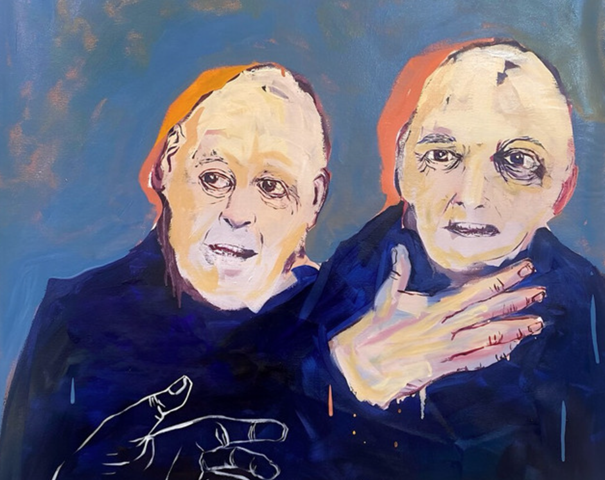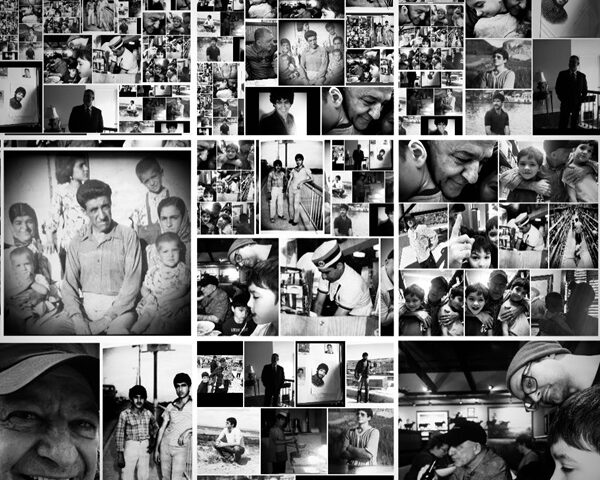
Code Pie are a self-professed band of geeks. Apart from the fact that several of the band’s members hold careers in the technology field, the lively six-piece was initially formed through an internet ad. Yet, nowadays such aspects seem hardly unconventional. As technological occupations become more frequent and the internet continues to expand in use, it is not at all surprising when a band claims that they “met on the internet.” Using such contemporary skills, eventual lead vocalist and guitarist Enzo Palermo understood coherently that the internet could lead to life-changing experiences — musically and otherwise. Palermo, a professional graphic designer, put up an internet ad in 2002 as he searched for musicians to vacate the lineup for his anticipated musical project. When guitarist Salvatore Ciofli replied and the two hit it off, they began to compose several tunes that Palermo described as a mixture of electronic minimalism and post-rock. As other members, like bassist Michel Semienchuck and drummer Vince Varano, began to join, the group’s sound evolved into a more straightforward, accessible form of rock ‘n’ roll.
Upon the arrival of trumpeter Eva Boodman and cellist Rebecca Lessard, it appeared as if the now resolute sextet had finally traveled the long and grueling road to the discovery of a consistent stylistic method. With classic rock influences overshadowing a slight ska tinge of brass elements, they began to draw a local following in their native Canada. Ironically, they still had yet to decide on a name. Though they originally called themselves the unoriginal but amusing “Three Wops, Two Jews and a Ukrainian”, Palermo eventually decided on a name that would be deemed less controversial while implementing a bit of an inside joke for fellow computer programmers: Code Pie. When they released their debut album, This Habit, in 2005, it was an expressive display of their lovable DIY intellect. Openly revealing that the recording of the album was cut on a $700 budget using rented equipment and recorded in a variety of locations from a high school auditorium to the band members’ apartments, it sounded surprisingly professional considering Code Pie’s insufficient resources. Filled with catchy punk-edged guitar riffs and a concrete rhythm section, it was an enjoyably energetic debut that caught the attention of those who were caught in the appeal of a boastful six-member band. Even more appropriately, This Habit was released on their self-funded label, Flagless Records.

Due to local success and a bit of blogging chit-chat concerning Code Pie’s energetic live presence, This Habit led to a redistribution deal with PHD Canada, one of Canada’s most prominent music distributors. Since the distributive agreement, Code Pie have earned understandable comparisons to Arcade Fire on more than one basis. Due to the sheer facts that both bands hail from Montreal and contain a trumpeter and a cellist in their lineups, I suppose up-to-date Canadian music fans saw the evident comparisons even prior to the release of Funeral in 2004. However, as much as both bands enjoy the dramatic flair and the local limelight, the comparisons are nearly entirely superficial. Code Pie are more rooted in punk influences while Arcade Fire appear more fixated on orchestral emotion and overall ambitiousness. Despite some occasional likenesses, they are in separate leagues of stylistic importance. Code Pie’s two albums consist of songs that often utilize a consistent instrumental approach while Arcade Fire’s albums represent more of a grandiose quality, successfully attempting a variety of lyrical and instrumental methods in a fervent display of familial-based emotion. Despite such blatant musical differences, there remains one aspect that both can relate to. Resonating purely, they never give off a dull impression.
The Most Trusted Name in Yous is Code Pie’s second album, released on June 16th and now available on their own Flagless Records. A sprawling, ceaselessly entertaining release that stretches over sixteen tracks in nearly an hour, it is yet another sophomore album that enhances the previously distinguishable style of its predecessor. Code Pie now appears quite at ease with the use of Boodman’s trumpet and Lessard’s viola. Whereas This Habit saw more songs with a guitar-driven, punk-ridden aroma, nearly every song on The Most Trusted Name in Yous implements either a viola or trumpet. That being said, the band has fortunately shown no reluctance toward guitar or rhythm. The aggressively dynamic “Kinsey, Are We Even?” offers a fair share of each instrument as Palermo vocally relays a catchy form of energy reminiscent of excitable alt-rock acts in the vein of Mclusky. As he hoots and hollers a series of lyrical repetitions, Lessard’s backing vocals add a nice supplemental touch, employing a sense of rare serenity in a scene of chaos. “Conway Killjoy” is another track where the brass shines along with Palermo’s vigorous energy. The equally delectable “The Cost of Living” uses a series of keys to establish itself as one of the most subdued tracks on The Most Trusted Name in Yous. These are upbeat tracks that are bursting with energy and passion — qualities that Code Pie seems to conquer with apparent ease.
——————————————————————————————-
Code Pie – Kinsey, Are We Even?
[audio:https://obscuresound.com/mp3/code-kin.mp3]——————————————————————————————-
[audio:https://obscuresound.com/mp3/code-con.mp3]——————————————————————————————-
[audio:https://obscuresound.com/mp3/code-cos.mp3]——————————————————————————————-





